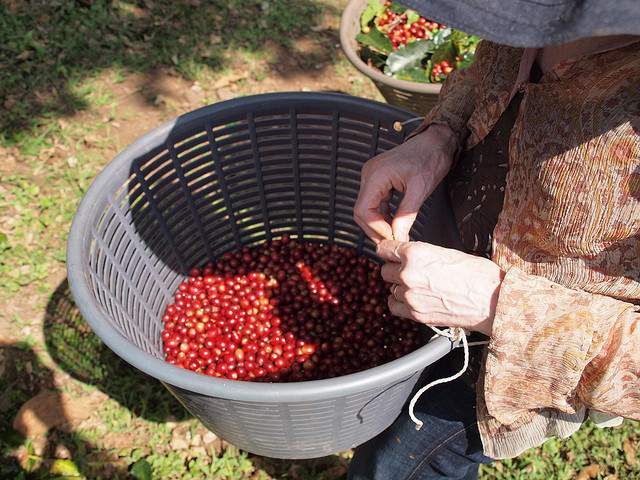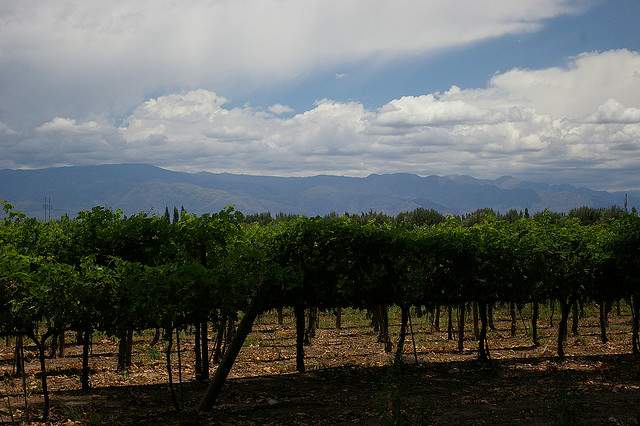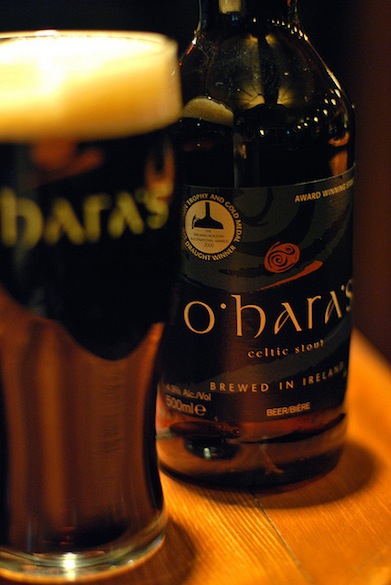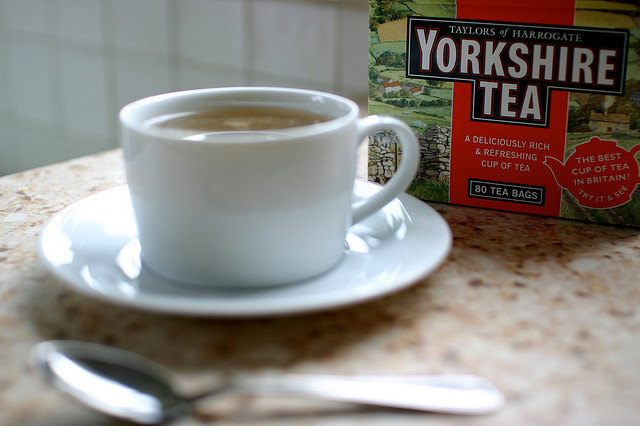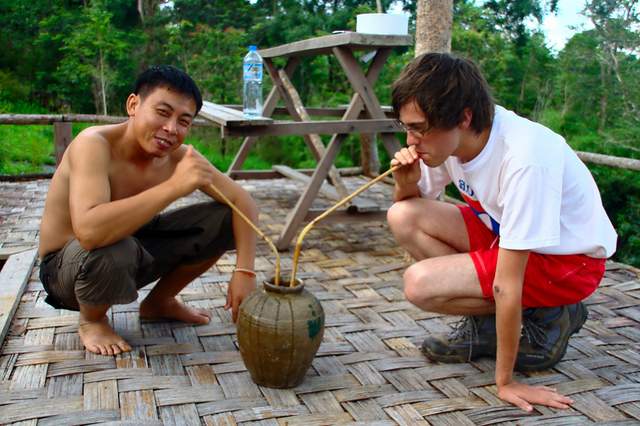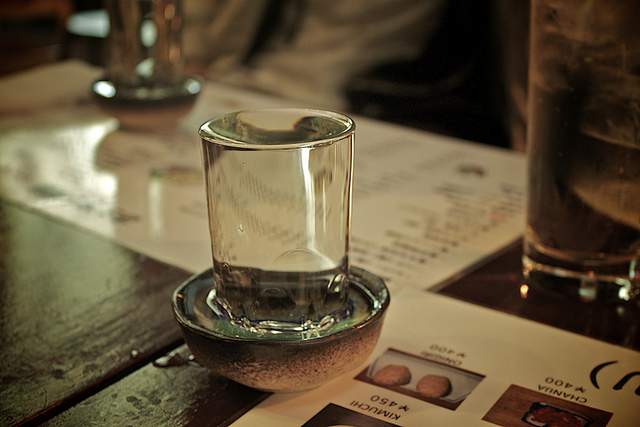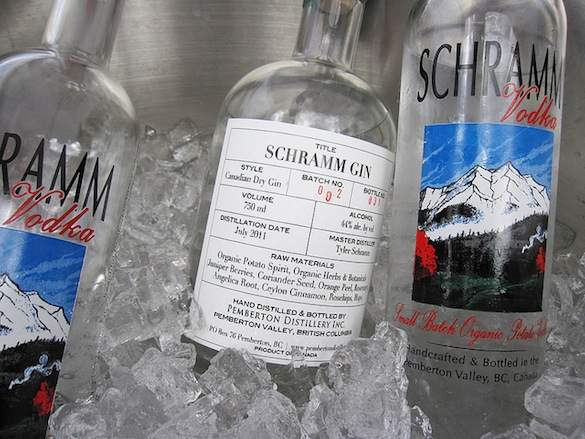Our “Sustainable Travel“ series is sponsored by Global Basecamps. Global Basecamps is specialty travel company that helps independent travelers research and book locally owned boutique hotels, off-the-beaten path lodges and multi-day excursions all over the world. Whether hiking the Inca Trail, experiencing a traditional Japanese Ryokan, or relaxing on the beaches of Thailand, Global Basecamps specializes in designing completely customized itineraries to meet each travelers specific priorities and match their travel style.
There’s a lot of talk these days about eating sustainably – choosing local growers, opting for free-range, organic, or hormone-free. But do you ever consider the environmental impact of your drinks?
These eight beverage makers know a thing or two about sustainable practices, whether setting up schemes to assist the local community, championing environmentally-friendly growing methods or simply keeping their ingredients list au natural and the best thing is, their doors are open to visitors.
[social]
From grinding your own coffee beans to sipping pints at an Irish brewery, there’s plenty of opportunity to go behind the scenes, witness the production process and, of course, sample the results of these sustainably-produced beverages from around the world.
1. Roast coffee beans in Costa Rica
In a country known for its coffee plantations there is no shortage of tours available to those curious about how these little beans end up ground into our lattes, but Finca Rosa Blanca is one with eco credentials to match its delicious brews. With an international ‘organic agriculture’ status and certified sustainable by the Rain Forest Alliance, the 30 acre plantation uses natural compost, natural pesticide substitutes and actively plants native shrubs and trees to provide shade and nitrogen for the coffee plants. They even get local school children in to help out.
Guests are welcome in the adjourning Finca Rosa Blanca Inn, the first certified sustainable hotel in Costa Rica and a place proud of its eco-friendly practices. Tours of the plantation offer a wealth of knowledge on the harvest and production process (including education in sustainable practices), as well as an opportunity to roast and pack your own coffee and take part in an expert-led tasting session.
2. Taste organic wine in Argentina
Alongside its enormous barbecued steaks and sultry tango bars, Argentina is renowned for its wines, in particular the country’s homegrown Malbec, a fruity red wine exported worldwide. Thankfully for travelers Argentina keeps its best wines at home and the country’s vineyards provide a welcome sojourn along the tourist trail. Dominio Del Plata is one worthwhile stop on Mendoza’s ever-popular wine trail, one of a modern breed of grape-growers and winemakers committed to organic, sustainable farming and production.
Family run and supportive of the local community (the Dominio del Plata Scholarship Foundation was created to support winery workers’ families), the vineyards operate under extensive organic policies and produce a number of acclaimed wines like Bodini Malbec, a brand that says it all in its name – an acronym for Built On Dreams of Individuals Not Institutions. The winery is open for tours and tastings by appointment ($10 each) and is happy to educate visitors in their sustainable practices.
3. Brew your own beer at O’Hara’s Brewery in Ireland
Whilst most tourists find themselves downing the Guinness pints at the pub, a trip to the green isle wouldn’t be complete without a trip to a local brewery. O’Hara’s Brewery in Carlow is one of a several small craft breweries that offer tours by appointment. Visitors can pad out their beer guts with a tasting session of their award winning beers (including limited edition seasonal brews) while learning about the brewing process, from tasting the malts and smelling the hops, to pulling the perfect pint. Not only that, but the tours aim to educate guests into Ireland’s lengthy brewing history, showcasing their back-to-basics approach to brewing as a way of keeping the traditional craft alive.
4. Drink tea the Yorkshire way in England
They might be one of England’s most popular tea brands, but Yorkshire Tea have retained their status as a family-owned, sustainable business, dedicated to delivering that British essential – a good, strong cuppa. Produced by Taylor’s of Harrogate since 1886, Yorkshire tea has long championed the goal of producing superior tea blends in an environmentally friendly and ethical way, working in partnership with worldwide growers under fair-price schemes, contributing regularly to local charities and funding their own ‘Yorkshire Rainforest Project’ to protect and replant rainforest around the globe.
Tea lovers can congregate at the company’s tea rooms in Yorkshire, England, where staff run cookery courses and are happy to talk you through their wide range of tea blends, or else Americans can look out for the Little Urn portable vans bringing the best of British tea across America.
5. Drink Lao Lao with the locals in Laos
From their home-brewed Beer Lao to their freshly smashed fruit smoothies and goat-milk shakes, Laos is a country well versed in locally grown, homemade beverages. It’s the potent rice whisky ‘Lao-Lao’ though that is really stuck in the nation’s heart; a dose of the drink is the staple of celebrations, toasts to good health and friendly get-togethers
Made from fermented rice, Lao-Lao is traditionally distilled by local women who sell it within the community (typically for under $1 a bottle) the result being that standards vary considerably but supplies never run dry! Lao-Lao is available all over the country, but if you really want to experience it the best way is to visit a local ‘whisky village,’ of which a few are open to tourists usually tagged onto a regional tour. Tours from Luang Prabang to the Pak Ou caves north of the city, as well as tours to the ‘Plain of Jars’ in the North, both visit whisky villages that allow you to witness the production process as well as sample an abundance of different flavors.
6. Sample traditionally made Sake in Japan
Gorging on sashimi and knocking back the sake are Japanese pastimes made for travelers, but for those looking for a little behind-the-scenes action, a trip to a sake factory can make an interesting addition to those sushi-rolling and origami courses. Sudo Honke is not only the country’s oldest kura (sake brewery) still in action (historical records date it back to 1141AD!) but it’s also one of the most environmentally friendly and sustainable breweries around.
As founder Sudo Honke philosophizes: “Sake is made from rice. Good rice comes from good soil. Good soil comes from fresh and high-quality water. Such water comes from protecting our trees. Protecting the natural environment makes excellent sake.” Visitors to the factory (mostly Japanese, although foreigners are catered for too) get a chance to witness the brewing process, meet the local community members who run the small factory, sample some of the top-notch produce and learn about their sustainable practices from tree-planting to community development.
7. Experience a sustainable tea plantation in India
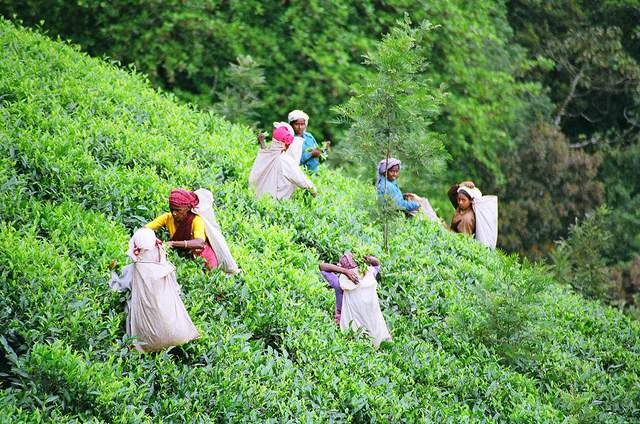
Tea plantations are big business in India but Wayanad Tea County is one place doing it differently. A tourist resort set amidst the Priyadarshini Tea Estate (holding some 137 acres of tea plantations), Wayanad Tea County filters tourist money back into the community, offering free meals to local tribal workers as well as ensuring fair wages and accommodation, and supporting childhood education for the 200 or so worker’s families. Not only that, but they offer guided tours and treks of the tea plantations where guests can learn about plucking, pruning, lopping and tea cultivation, as well as learning about their sustainable practices and future aims.
8. Enjoy eco-friendly vodka in Canada
The small mountain valley of Pemberton, nicknamed “Spud valley” for its premium quality potato harvest, and known for its crystal clear glacial water, is the perfect place to source ingredients for a top-end artisan vodka, so say the owners of the family-run Pemberton Distillery. The organic artisan distillery is nestled in the Coast Mountains in British Columbia and churns out small batches of regional favorite Schramm Vodka.
Employing a geothermal heating and cooling system, using all-organic ingredients, natural fermentation and traditional hand-distilling methods, this is a place that cares as much about its eco credentials as it does its boutique spirits. Their free tasting rooms are open 6 days a week between October and April, with guided tours ($5 per person) run twice daily, schooling guests on the art of transforming a simple spud into a vodka shot.
Exploring the process of locally made sustainable products throughout the world provides insight into the country’s culture and ecotourism initiatives. For example, Global Basecamps’ Japan tours include private tours of Japanese sake breweries, allowing travelers to learn about the traditions of sake, tea culture, and the history of the nation. Whether exploring a coffee plantation in Costa Rica, learning about the process of making high quality pearls during a Vietnam tour, or wine tasting in Argentina, learning about the local trade or specialty product is sure to be a culturally enriching and memorable travel experience.
Learn more about drinks around the world:
- 5 Places You Can Become a Coffee Snob
- Wine Tasting in South America – Where to Go and What to Try
- Famous Local Drinks to Try on the Road
- How to Get Drunk Around the World: 5 Countries and Their Drinking Rules
Photos by: colros, Jessie Reeder, [puamelia], DjD, FullyFuntnlPhil, Jouko Karvonen, Steenbergs, Ariane Colenbrander

